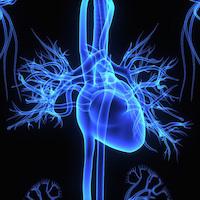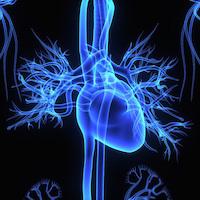
Credit: UT Southwestern
DALLAS – April 26, 2017 – A program that penalizes hospitals for high early readmission rates of heart attack patients may be unfairly penalizing hospitals that serve a large proportion of African-Americans and those with more severe illness, a study by UT Southwestern Medical Center researchers suggests.
The Centers for Medicare and Medicaid Services' (CMS) Hospital Readmissions Reduction Program, instituted in 2013, reduces payments by up to 3 percent for hospitals that have high 30-day readmission rates for heart attack, heart failure, or pneumonia.
The study, which appears in JAMA Cardiology, looked at one-year outcomes for heart attack patients at 377 hospitals. It found no difference in one-year mortality rates and long-term readmission rates between hospitals that were judged to have an excessive readmission ratio (ERR) and those that did not. Additionally, hospitals that had been penalized tended to serve higher proportions of ethnic minorities and patients with more severe disease.
"The current CMS readmission metric does not correlate with long-term clinical outcomes. Furthermore, there is an inequitable distribution of the penalties such that hospitals that treat a greater proportion of socially or medically disadvantaged patients may be unfairly penalized despite comparable quality of care," said Dr. Ambarish Pandey, Cardiology Fellow and first author of the study.
The current study builds on a 2016 study by Dr. Pandey and others that found similar problems with penalties for 30-day readmissions for heart failure. Heart failure is a chronic, progressive weakening of the heart, and heart failure patients tend to have many hospital stays.
Together, the findings in the two studies suggest that the readmissions reduction program should be re-evaluated, Dr. Pandey said.
Dr. James de Lemos, Professor of Internal Medicine and senior author of the study, said the study suggests that socioeconomic status should be part of the ERR calculation.
"Our findings raise concern about the fair and equitable allocation of CMS penalties for readmissions. Hospitals that take care of larger numbers of patients with socioeconomic disadvantage, including a higher proportion of race and ethnic minorities, are more likely to be penalized, even though quality of care measures and long-term outcomes were not worse for these hospitals. It is fundamentally unfair to penalize hospitals for factors that are beyond their control. We support proposed changes to pay for performance that would consider socioeconomic status in the risk-adjustment methods to calculate rewards and penalties," said Dr. de Lemos, who holds the Sweetheart Ball-Kern Wildenthal, M.D., Ph.D. Distinguished Chair in Cardiology.
###
Other UT Southwestern researchers who contributed to this study are Dr. Hurst Hall, Cardiology Fellow; Dr. Sandeep Das, Associate Professor of Internal Medicine; and Dr. Dharam Kumbhani, Assistant Professor of Internal Medicine. Researchers from Brigham & Women's Heart and Vascular Center, Duke Clinical Research Institute, Duke University Medical Center, Emory University School of Medicine, Columbia University School of Medicine, and Ronald Reagan-UCLA Medical Center also contributed to this study.
The American College of Cardiology Foundation's National Cardiovascular Data Registry supported this research.
About UT Southwestern Medical Center
UT Southwestern, one of the premier academic medical centers in the nation, integrates pioneering biomedical research with exceptional clinical care and education. The institution's faculty has received six Nobel Prizes, and includes 22 members of the National Academy of Sciences, 18 members of the National Academy of Medicine, and 14 Howard Hughes Medical Institute Investigators. The faculty of more than 2,700 is responsible for groundbreaking medical advances and is committed to translating science-driven research quickly to new clinical treatments. UT Southwestern physicians provide care in about 80 specialties to more than 100,000 hospitalized patients, 600,000 emergency room cases, and oversee approximately 2.2 million outpatient visits a year.
###
This news release is available on our website at http://www.utsouthwestern.edu/news.
To automatically receive news releases from UT Southwestern via email, subscribe at http://www.utsouthwestern.edu/receivenews
Media Contact
Cathy Frisinger
[email protected]
214-648-3404
@UTSWNews
http://www.swmed.edu





